The Atrial Septal Defect (ASD) Repair Cost in Thailand approximately starts from THB 766475 (USD 21500)
An atrial septal defect (ASD) is a hole in the wall (septum) between the upper two chambers of the heart, known as atria. It is a congenital defect, that is, the defect is present at the time of the birth.
Some ASDs are extremely small and never cause any trouble. Some may close on their own during infancy or early years after the birth. However, for symptomatic ASDs, people may need treatment during their childhood or adulthood, depending on the severity of the symptoms.
ASDs may also go unnoticed or undiagnosed. However, symptoms such as breathlessness, swelling in the legs, heart palpitations, and heart murmurs can be a sign of ASD. Therefore, it must be repaired then and there.
Atrial septal defects are repaired or treated through following two approaches. The ASD repair cost depends on which of these approaches are applied.
The success rate of both approaches is more than 98 percent. However, transcatheter ASD repair has been associated with quicker recovery.
The following factors affect the Atrial Septal Defect repair cost:
Treatment cost
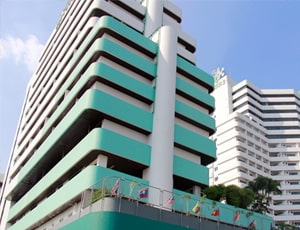
Types of Atrial Septal Defect (ASD) Repair in Phyathai 2 International Hospital and its associated cost
| Treatment Option | Approximate Cost Range (USD) | Approximate Cost Range (THB) |
|---|---|---|
| ASD Repair (Overall) | 24567 - 35745 | 845723 - 1288462 |
| Surgical Repair | 24142 - 30883 | 869789 - 1112338 |
| Transcatheter ASD Closure | 25120 - 33801 | 916472 - 1196747 |
| Robotic-assisted ASD Repair | 27372 - 36616 | 950424 - 1280257 |
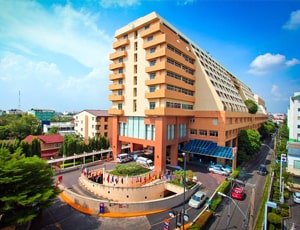
Types of Atrial Septal Defect (ASD) Repair in Vejthani Hospital and its associated cost
| Treatment Option | Approximate Cost Range (USD) | Approximate Cost Range (THB) |
|---|---|---|
| ASD Repair (Overall) | 24292 - 36491 | 873445 - 1307292 |
| Surgical Repair | 24453 - 31183 | 849628 - 1099339 |
| Transcatheter ASD Closure | 25635 - 33758 | 916181 - 1177857 |
| Robotic-assisted ASD Repair | 27458 - 36267 | 955919 - 1266441 |
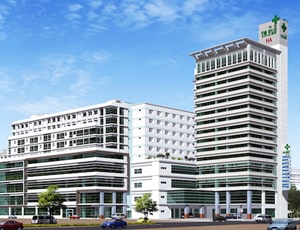
Types of Atrial Septal Defect (ASD) Repair in Yanhee International Hospital and its associated cost
| Treatment Option | Approximate Cost Range (USD) | Approximate Cost Range (THB) |
|---|---|---|
| ASD Repair (Overall) | 24592 - 35462 | 845581 - 1307085 |
| Surgical Repair | 24000 - 30870 | 852607 - 1105297 |
| Transcatheter ASD Closure | 25523 - 33190 | 897399 - 1200991 |
| Robotic-assisted ASD Repair | 27287 - 35706 | 953487 - 1306508 |

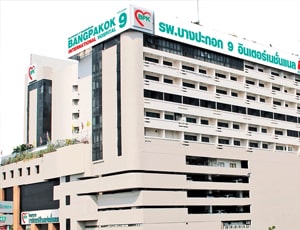
Types of Atrial Septal Defect (ASD) Repair in Bangpakok 9 International Hospital and its associated cost
| Treatment Option | Approximate Cost Range (USD) | Approximate Cost Range (THB) |
|---|---|---|
| ASD Repair (Overall) | 24554 - 36443 | 859524 - 1266093 |
| Surgical Repair | 24527 - 31569 | 856940 - 1134293 |
| Transcatheter ASD Closure | 25138 - 33101 | 912811 - 1183362 |
| Robotic-assisted ASD Repair | 27095 - 36410 | 945538 - 1294539 |
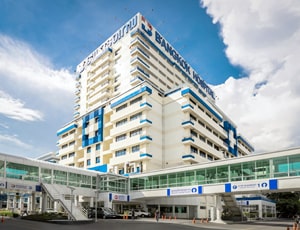
Types of Atrial Septal Defect (ASD) Repair in Bangkok Hospital and its associated cost
| Treatment Option | Approximate Cost Range (USD) | Approximate Cost Range (THB) |
|---|---|---|
| ASD Repair (Overall) | 23958 - 36418 | 843534 - 1289250 |
| Surgical Repair | 24688 - 31296 | 849440 - 1124856 |
| Transcatheter ASD Closure | 24855 - 33986 | 920213 - 1215487 |
| Robotic-assisted ASD Repair | 26481 - 35832 | 952195 - 1272716 |
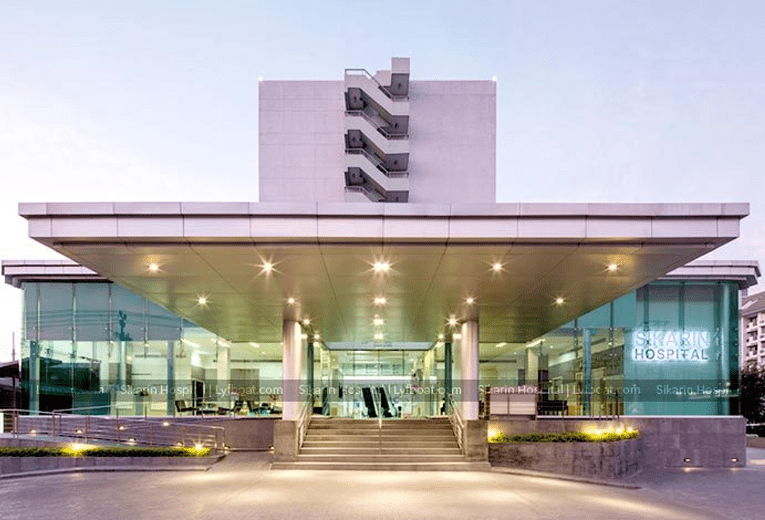
Types of Atrial Septal Defect (ASD) Repair in Sikarin Hospital and its associated cost
| Treatment Option | Approximate Cost Range (USD) | Approximate Cost Range (THB) |
|---|---|---|
| ASD Repair (Overall) | 23747 - 36431 | 876800 - 1255066 |
| Surgical Repair | 24296 - 31193 | 853267 - 1139884 |
| Transcatheter ASD Closure | 25619 - 33980 | 891171 - 1181729 |
| Robotic-assisted ASD Repair | 26656 - 35791 | 974708 - 1299035 |
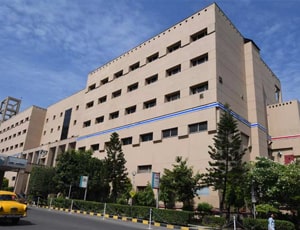
Types of Atrial Septal Defect (ASD) Repair in Apollo Multispecialty Hospitals and its associated cost
| Treatment Option | Approximate Cost Range (USD) | Approximate Cost Range (INR) |
|---|---|---|
| ASD Repair (Overall) | 5744 - 13347 | 452566 - 1131354 |
| Surgical Repair | 5613 - 9984 | 458336 - 833754 |
| Transcatheter ASD Closure | 6613 - 11299 | 561687 - 941783 |
| Robotic-assisted ASD Repair | 7771 - 13360 | 634885 - 1082676 |
DOCTORS IN 13 SPECIALITIES
FACILITIES & AMENITIES
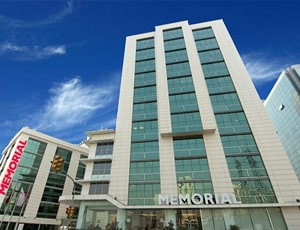
Types of Atrial Septal Defect (ASD) Repair in Memorial Atasehir Hospital and its associated cost
| Treatment Option | Approximate Cost Range (USD) | Approximate Cost Range (TRY) |
|---|---|---|
| ASD Repair (Overall) | 9186 - 17112 | 266260 - 498804 |
| Surgical Repair | 8889 - 14917 | 276045 - 447913 |
| Transcatheter ASD Closure | 10165 - 15748 | 305285 - 467554 |
| Robotic-assisted ASD Repair | 11484 - 16714 | 344531 - 513477 |
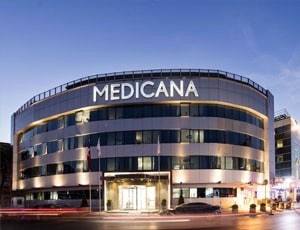
Types of Atrial Septal Defect (ASD) Repair in Medicana Bahcelievler Hospital and its associated cost
| Treatment Option | Approximate Cost Range (USD) | Approximate Cost Range (TRY) |
|---|---|---|
| ASD Repair (Overall) | 8952 - 17208 | 275525 - 502700 |
| Surgical Repair | 8910 - 14791 | 265998 - 436082 |
| Transcatheter ASD Closure | 10243 - 15574 | 303626 - 474458 |
| Robotic-assisted ASD Repair | 11335 - 16899 | 334348 - 519616 |
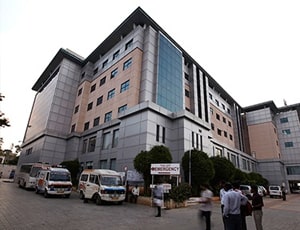
Types of Atrial Septal Defect (ASD) Repair in BGS Gleneagles Global Hospitals and its associated cost
| Treatment Option | Approximate Cost Range (USD) | Approximate Cost Range (INR) |
|---|---|---|
| ASD Repair (Overall) | 5512 - 13329 | 467210 - 1112927 |
| Surgical Repair | 5501 - 10213 | 461052 - 829884 |
| Transcatheter ASD Closure | 6678 - 11017 | 544884 - 926341 |
| Robotic-assisted ASD Repair | 7832 - 13718 | 643343 - 1097210 |
DOCTORS IN 14 SPECIALITIES
FACILITIES & AMENITIES
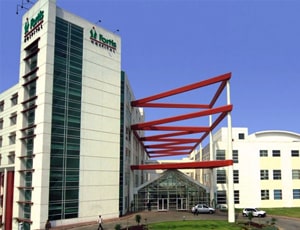
Types of Atrial Septal Defect (ASD) Repair in Fortis Hospital and its associated cost
| Treatment Option | Approximate Cost Range (USD) | Approximate Cost Range (INR) |
|---|---|---|
| ASD Repair (Overall) | 5078 - 12152 | 414204 - 997021 |
| Surgical Repair | 5072 - 9094 | 418016 - 746674 |
| Transcatheter ASD Closure | 6075 - 10136 | 498754 - 836080 |
| Robotic-assisted ASD Repair | 7086 - 12163 | 584783 - 999771 |
DOCTORS IN 12 SPECIALITIES
FACILITIES & AMENITIES
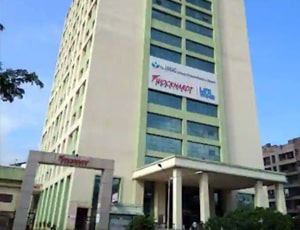
Types of Atrial Septal Defect (ASD) Repair in Wockhardt Hospital, Umrao and its associated cost
| Treatment Option | Approximate Cost Range (USD) | Approximate Cost Range (INR) |
|---|---|---|
| ASD Repair (Overall) | 5072 - 12196 | 418199 - 995810 |
| Surgical Repair | 5074 - 9090 | 416284 - 748860 |
| Transcatheter ASD Closure | 6116 - 10172 | 500448 - 830035 |
| Robotic-assisted ASD Repair | 7137 - 12151 | 583821 - 995688 |
DOCTORS IN 13 SPECIALITIES
FACILITIES & AMENITIES
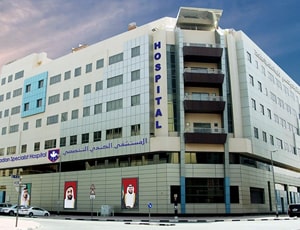
Types of Atrial Septal Defect (ASD) Repair in Canadian Specialist Hospital and its associated cost
| Treatment Option | Approximate Cost Range (USD) | Approximate Cost Range (AED) |
|---|---|---|
| ASD Repair (Overall) | 11493 - 21534 | 40990 - 79547 |
| Surgical Repair | 11340 - 16916 | 41470 - 62674 |
| Transcatheter ASD Closure | 12527 - 19109 | 45415 - 70383 |
| Robotic-assisted ASD Repair | 13921 - 21567 | 52559 - 80099 |

Types of Atrial Septal Defect (ASD) Repair in Indraprastha Apollo Hospital and its associated cost
| Treatment Option | Approximate Cost Range (USD) | Approximate Cost Range (INR) |
|---|---|---|
| ASD Repair (Overall) | 5564 - 13416 | 467768 - 1126690 |
| Surgical Repair | 5534 - 10100 | 463611 - 824911 |
| Transcatheter ASD Closure | 6757 - 11447 | 545960 - 903810 |
| Robotic-assisted ASD Repair | 7964 - 13414 | 653658 - 1094953 |
DOCTORS IN 14 SPECIALITIES
FACILITIES & AMENITIES
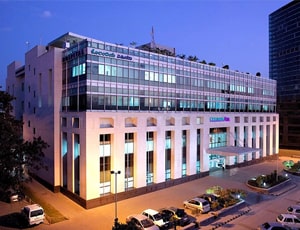
Types of Atrial Septal Defect (ASD) Repair in Manipal Hospital, Yeshwantpur and its associated cost
| Treatment Option | Approximate Cost Range (USD) | Approximate Cost Range (INR) |
|---|---|---|
| ASD Repair (Overall) | 5730 - 13353 | 457418 - 1088021 |
| Surgical Repair | 5722 - 10231 | 466994 - 826618 |
| Transcatheter ASD Closure | 6745 - 11038 | 554156 - 924274 |
| Robotic-assisted ASD Repair | 7935 - 13404 | 633332 - 1119789 |
Atrial Septal Defect is a congenital heart defect in which there is a hole in the wall (septum) between the upper chambers of the heart (atria). This hole allows blood to flow between the atria, which leads to increased blood flow to the lungs. While small ASDs may not cause any significant concerns, whereas larger ones may require medical attention, such as surgical repair, to prevent complications.
The main reason for atrial septal defects remains elusive, manifesting as an alteration in the heart's structure during fetal development. The intricate process of the baby's heart formation is an essential stage for the emergence of this condition.
ASDs may arise due to the following factors, including
Atrial septal defects (ASDs) may be better understood by considering the normal functioning of the heart, which has four chambers – two atria and two ventricles. The right side of the heart directs blood to the lungs for oxygenation, while the left side pumps oxygenated blood throughout the body via the aorta. A significant ASD can lead to an excess flow of blood to the lungs, straining the right side of the heart. If left untreated, this can result in the enlargement and weakening of the right heart chamber and an elevation in pulmonary artery pressure, Causing pulmonary hypertension.
There are different types of ASDs classified based on the Location and the size of the hole, these include:
Atrial septal defect (ASD) repair is used to close a hole in the septum, There are different methods for repairing ASD, and the choice of procedure depends on the size, the position of the defect, and the patient's general health the determining factors in choosing the appropriate treatment.
Here are the common ways of treatment:
Post-surgery, patients usually have a short hospital stay, with transcatheter closure requiring 1-2 days and open-heart surgery lasting 3-7 days, sometimes involving ICU transfer to continue monitoring. A comprehensive recovery plan involves regular follow-up appointments, dietary adjustments, wound care, and emotional support. Additionally, effective pain management, adherence to activity restrictions, and a gradual return to normal activities are crucial components of the recovery process.
Ask your healthcare adviser for the best multiple options and choose the one that meets your expectations
The average cost of Atrial Septal Defect (ASD) Repair in Thailand starts from USD 21500 Many multispeciality hospitals in Thailand that are Healthcare Accreditation Institute, JCI certified are approved and most sought after for treating international patients with Atrial Septal Defect (ASD) Repair
Atrial Septal Defect (ASD) Repair cost in Thailand varies from one hospital to the other. There are many hospital that cover the cost of pre-surgical investigations of the patient in the treatment package. Typically, the package cost of Atrial Septal Defect (ASD) Repair in Thailand includes the expenses related to the surgeon's fee, anesthesia, hospital, meals, nursing and ICU stay. There are many things that may increase the cost of Atrial Septal Defect (ASD) Repair in Thailand, including prolonged hospital stay and complications after the procedure.
Many hospitals in Thailand perform Atrial Septal Defect (ASD) Repair. For quick reference, the following are some of the leading hospitals for Atrial Septal Defect (ASD) Repair in Thailand:
The recovery of the patient many vary, depending on several factors. However, on an average, patient is supposed to stay for about 20 days in the country after discharge. This period is important to conduct all the follow-up tests to ensure that the surgery was successful and the patient can go back to the home country.
Apart from the Atrial Septal Defect (ASD) Repair cost, there are a few other daily charges that the patient may have to pay. These are the charges for daily meals and accommodation outside the hospital. The extra charges may start from USD 50 per person.
There are many cities that offer Atrial Septal Defect (ASD) Repair in Thailand, including the following:
Patients who are interested in availing telemedicine consultation before they travel for Atrial Septal Defect (ASD) Repair in Thailand can opt for the same. There are many Atrial Septal Defect (ASD) Repair surgeons who offer video telemedicine consultation, including the following:
| Doctor | Cost | Schedule Your Appointment |
|---|---|---|
| Dr. Vichai Benjacholamas | USD 81 | Schedule Now |
After Atrial Septal Defect (ASD) Repair, the patient is supposed to stay for about 5 days in the hospital for recovery and monitoring. During the recovery, the patient is carefully monitored and control tests are performed to see that everything is okay. If required, physiotherapy sessions are also planned during recovery in hospital.
There are more than 5 hospitals that offer Atrial Septal Defect (ASD) Repair in Thailand. The above listed hospitals are approved to perform the surgery and have proper infrastructure to handle Atrial Septal Defect (ASD) Repair patients. Such hospitals follow all legal protocols and guidelines as specified by the local medical affairs body when it comes to the treatment of international patients.
Some of the most sought after doctors for Atrial Septal Defect (ASD) Repair in Thailand are: